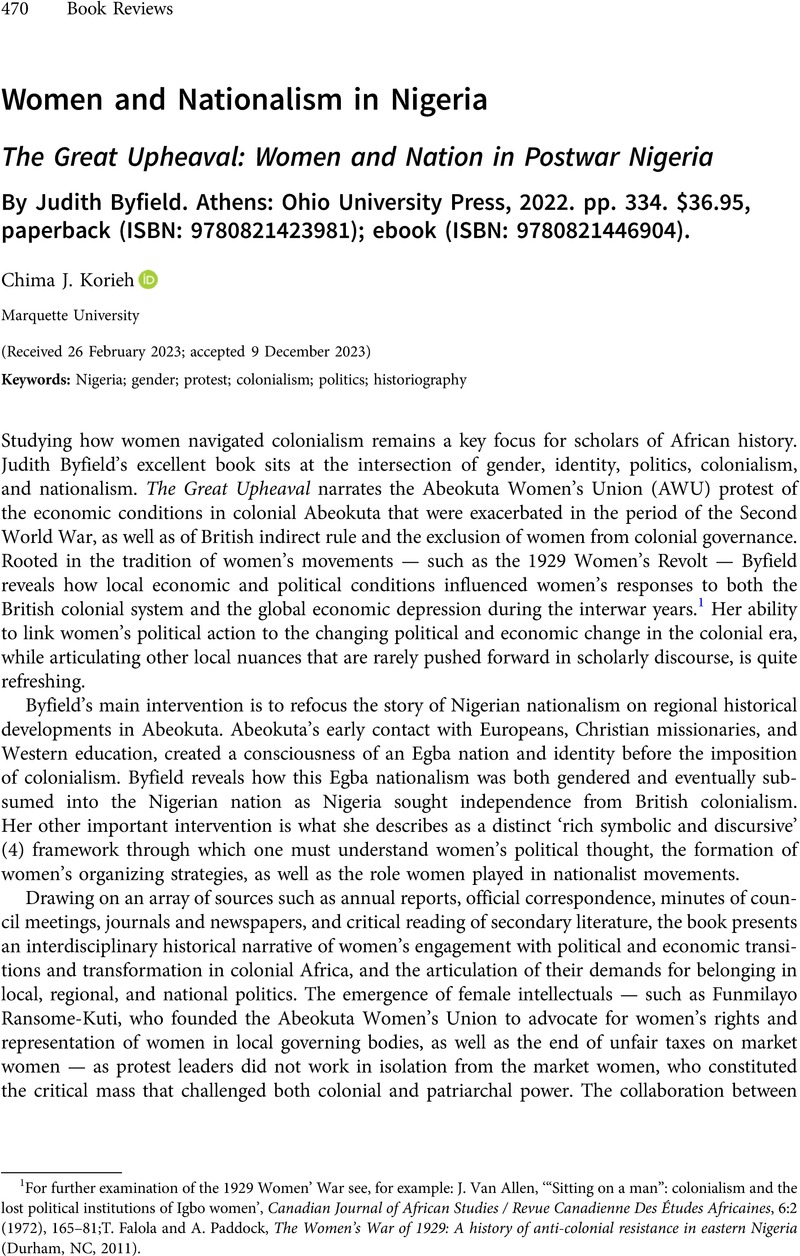No CrossRef data available.
Published online by Cambridge University Press: 31 January 2024

1 For further examination of the 1929 Women’ War see, for example: Allen, J. Van, ‘“Sitting on a man”: colonialism and the lost political institutions of Igbo women’, Canadian Journal of African Studies / Revue Canadienne Des Études Africaines, 6:2 (1972), 165–81Google Scholar; Falola, T. and Paddock, A., The Women's War of 1929: A history of anti-colonial resistance in eastern Nigeria (Durham, NC, 2011)Google Scholar.
2 See Johnson-Odim, C., For Women and the Nation: Funmilayo Ransome-Kuti of Nigeria (Urbana-Champaign, 1997)Google Scholar.
3 Korieh, C. J. and Njoku, R. C., Missions, States, and European Expansion in Africa (New York, 2007)CrossRefGoogle Scholar.
4 For more on the contributions of Nigeria to British War effort, see Korieh, C. J., Nigeria and World War Two: Colonialism, Empire and Global Conflict (Cambridge, 2020)Google Scholar.